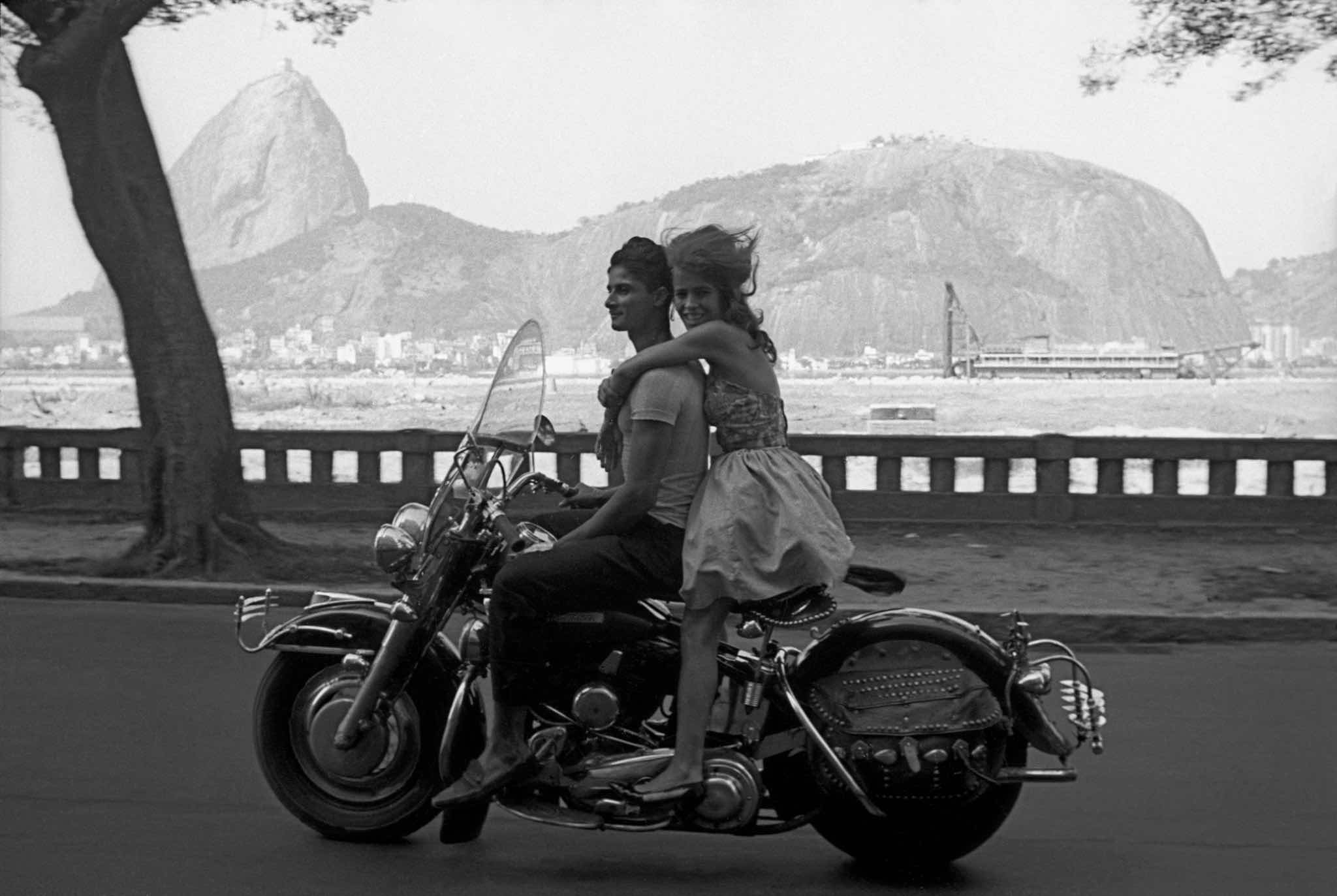HORVATLAND - THE '60s - PHOTOJOURNALISM - WORLD TRIP - RIO DE JANEIROGO TO HOME
1963, from Time machine
As you walk around Rio, you will see more lovers than in any other city in the world. Cariocas – as its inhabitants are called – kiss on the sand, on the benches of the Avenida Atlantica, in the entrances to buildings, on the steps leading up to the favelas, in the dark of the bossanova clubs, on the worn-out seats of the lotaçaô (the small private buses which can be hailed like taxis and always look as if they were dropping parts). You end up wondering how kissing can take up so much time in people’s lives, even accepting that some only kiss for interest, for sport, out of boredom or for the simple pleasure of physical contact. After a few days, experience might teach you that in Rio, men and women often kiss for want of an alternative: hoteliers are not allowed to let rooms to unmarried couples and the police, which is not very efficient in other matters, is punctilious in this. Unattached girls (fortunately there are still a few left) are potential kissing partners. At every step you’ll come across the smiling availability of their glances. And you’ll end telling yourself that the tourist brochure didn’t lie: Rio is the place where you would like to spend the rest of your days. You can hang on to this outlook for the remainder of your stay, as long as you stick to some simple rules: 1. Don’t ever stray from Copacabana, Ipanema or Leblon, the three residential districts which give onto the beaches. In the Cidade, the business centre, you will only meet people trying to earn a living, which makes them a lot less lovable. Above all, don’t wander about the favelas, which are inhabited by under-nourished blacks. If you really want to get an overall picture, take either one of the Corcovado or the Sugarloaf funiculars. On a clear day, the view will look exactly as in the brochure. 2. Agree to every appointment but never turn up, even if the proposing party is a pretty woman claiming to be in love with you or a government minister. No carioca honours his appointments. But if, at the arranged hour, you happen to pass Castelinho, the fashionable Ipanema bistro, you’ll stand a very good chance of seeing the person you were supposed to meet (unless, of course, it was there that he or she promised to meet you). 3. Besides, you should realise that a missed appointment doesn’t denote a lack of interest from the other party. Next day, you may meet the same minister in his trunks on the beach and make him sign on the spot for the old aircraft carrier that you want to sell him. (This has actually happened: in Rio’s military port, one can see a huge aircraft carrier bought from US Navy surplus. It never returned to sea because the Brazilian navy doesn’t have the technicians to maintain it.) What matters is to make the most of the jeito, the enthusiasm which is quickly inflamed and just as quickly extinguished and which characterises a cariocas‘ reactions. If you give the minister the time to say, ‘I haven’t got my chequebook on me, come to my office tomorrow’ you can wave goodbye to your deal. 4. Above all, in love as in business, never appear too persuasive, never show your need, never engage your ambition or prestige. Tell yourself that, sooner or later, what you wish will be served to you on a platter, if only you have the time (and the money) to wait. I consider myself particularly well qualified to give this advice, because I did exactly the opposite. This led me to hate the most lovable city in the world and to feel irritated by people who only wanted to please me – as long as it didn’t require too much effort.


1963, Rio de Janeiro, Brazil, couple on a motor bike

1963, Rio de Janeiro, Brazil, couple on a motor bike
